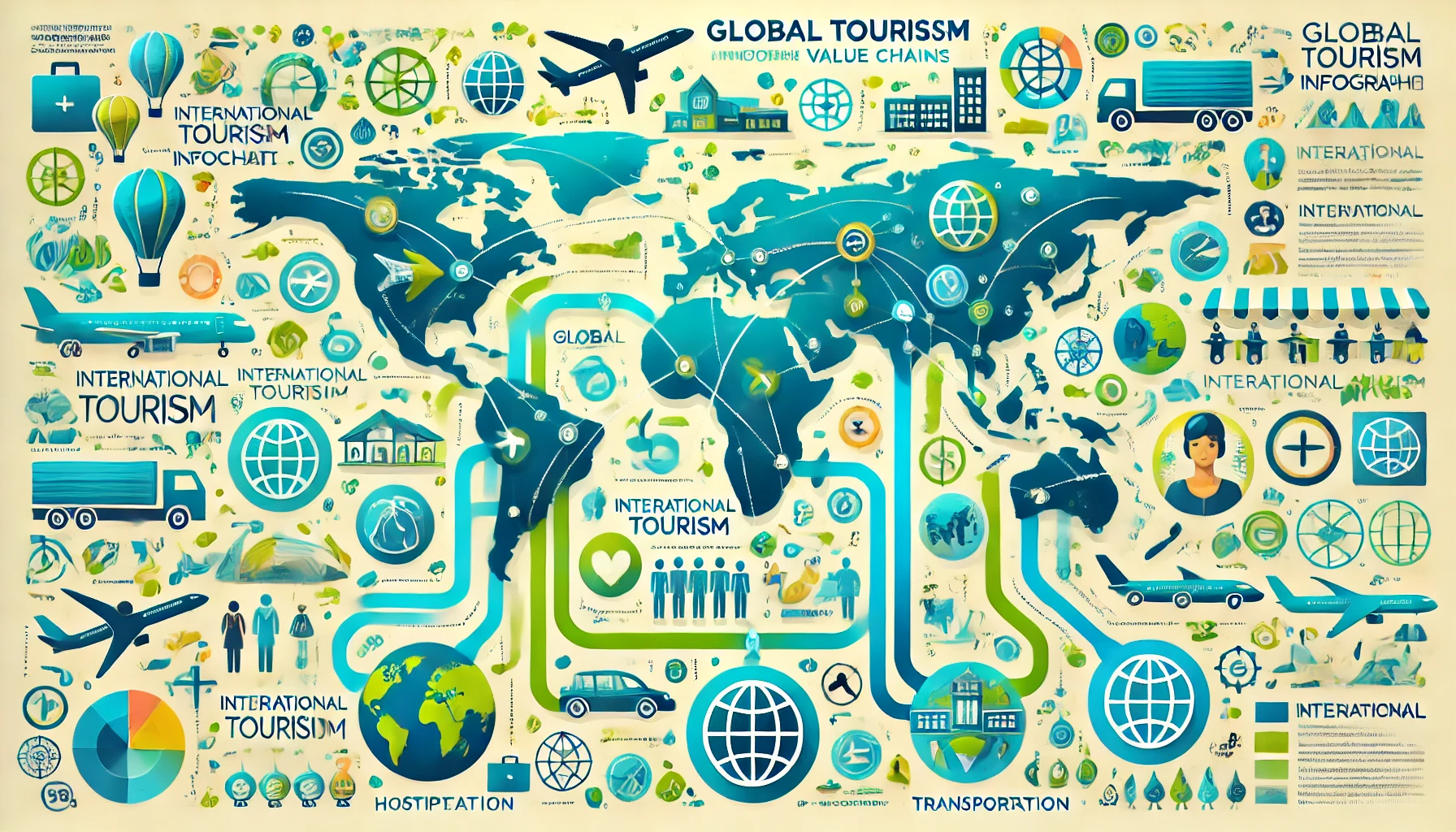Harnessing Tourism’s Role in Global Value Chains for Sustainable Economic Growth
The OECD report reveals that international tourism significantly drives global and domestic economies, with 28% of its value added generated indirectly and 17% from foreign inputs, highlighting its role in global value chains. It underscores the need for better data frameworks and sustainable policies to maximize tourism's economic, social, and environmental contributions.

The OECD report, Estimating the Global Economic Impacts of International Tourism, authored by Ali Alsamawi, Akash Kohli, and Norihiko Yamano from the OECD Directorate for Science, Technology, and Innovation, unveils the vast economic footprint of international tourism through the lens of global value chains. By leveraging the OECD’s Inter-Country Input-Output (ICIO) tables, this comprehensive study explores how cross-border exports and direct purchases by non-residents generate significant economic value, both directly and indirectly. Covering 76 economies from 1995 to 2020, the research highlights that 28% of the value added from international tourism comes indirectly from upstream domestic sectors, while 17% stems from foreign inputs. These findings underscore the role of tourism as an economic catalyst with intricate interdependencies across industries and borders, influencing sectors beyond the immediate scope of hospitality and travel.
Tourism Beyond Traditional Sectors
Tourism’s economic contributions are far-reaching, impacting industries not typically associated with the sector. For example, while non-resident spending predominantly benefits traditional tourism-related industries such as hotels, restaurants, and transportation, its ripple effects extend into upstream sectors like agriculture, manufacturing, and professional services. The inputs required to support tourism activities such as agricultural products for hotels and restaurants create additional value within domestic economies. The study emphasizes the varying reliance on tourism across countries. In Luxembourg, for instance, over 60% of the value added in hotels and restaurants in 2019 was linked to non-resident spending, while larger economies like Germany and Japan see more prominent contributions from international student expenditures. This diversity reflects how countries strategically leverage tourism to enhance economic activity, diversify income sources, and address vulnerabilities associated with resource dependence.
Resilience Amid Economic Shocks
The research traces tourism’s evolution over decades, highlighting its resilience and adaptability. From a steady increase in value added prior to the COVID-19 pandemic to the severe contraction during its peak, the sector has proven its importance to global and domestic economies. In Thailand, tourism-driven domestic value added plummeted fivefold in 2020 compared to 2019, while OECD countries collectively experienced a twofold decline. However, recovery trends are promising, with international tourism reaching 97% of pre-pandemic levels by early 2024. This rebound not only underscores tourism’s capacity to recover but also highlights its pivotal role in economic revitalization. Least-developed countries, in particular, benefit significantly from tourism, as it serves as a critical mechanism for poverty alleviation and a reliable source of foreign exchange.
The Role of Global Value Chains
The integration of global value chains (GVCs) into tourism highlights the growing interdependence between countries in supporting non-resident activities. In 2019, over 80% of tourism expenditures contributed to domestic value added, although the foreign value-added component has steadily grown. Smaller economies, such as Iceland and Luxembourg, exemplify how strategic tourism policies can maximize value added. Iceland, for instance, has capitalized on expanded travel routes and strategic marketing to position itself as a key stopover destination, significantly boosting its tourism-related revenues. Conversely, in Luxembourg, the foreign value-added content of tourism expenditures reached over 35% by 2020, emphasizing the reliance on imported inputs to sustain tourism activities. These trends highlight the need for countries to balance domestic and foreign inputs strategically to optimize economic benefits.
Challenges and Future Directions
Despite tourism’s recognized economic importance, significant challenges remain in measuring its full impact. Data inconsistencies, particularly in non-OECD countries, hinder comprehensive analyses. The absence of detailed Tourism Satellite Accounts (TSAs) and Supply and Use Tables (SUTs) in many countries limits the ability to capture nuanced impacts accurately. For instance, expenditures related to international education or business travel are often excluded, leading to underestimations. Addressing these gaps requires better data frameworks and standardized methodologies. The report also highlights opportunities to enhance policy-making by integrating additional insights into tourism’s environmental and employment impacts. Incorporating greenhouse gas emissions data into the ICIO framework could help policymakers manage tourism sustainably, while employment data could provide a clearer picture of labor market contributions across domestic and international sectors.
The OECD’s findings present a compelling case for prioritizing tourism as a key driver of global economic activity and sustainable development. By extending the ICIO framework, governments and stakeholders can better understand and harness tourism’s potential. Strategic investments in infrastructure, digitalization, and sustainability initiatives are crucial for maximizing tourism’s contributions while mitigating potential environmental and social impacts. The study’s insights reveal that tourism’s role extends far beyond traditional metrics, influencing upstream industries, creating employment, and driving innovation in global value chains. As international tourism continues to recover post-pandemic, there is a critical opportunity for countries to adopt policies that enhance its economic, social, and environmental contributions, ensuring it remains a resilient and inclusive engine of growth.
- FIRST PUBLISHED IN:
- Devdiscourse










